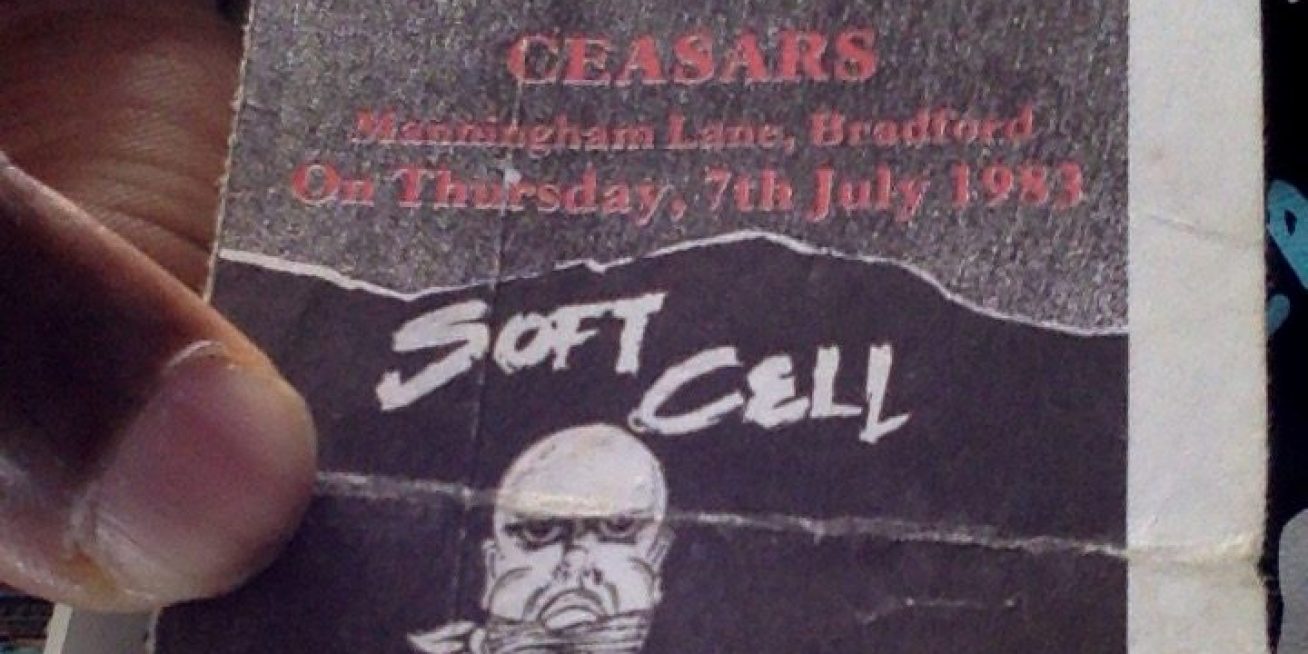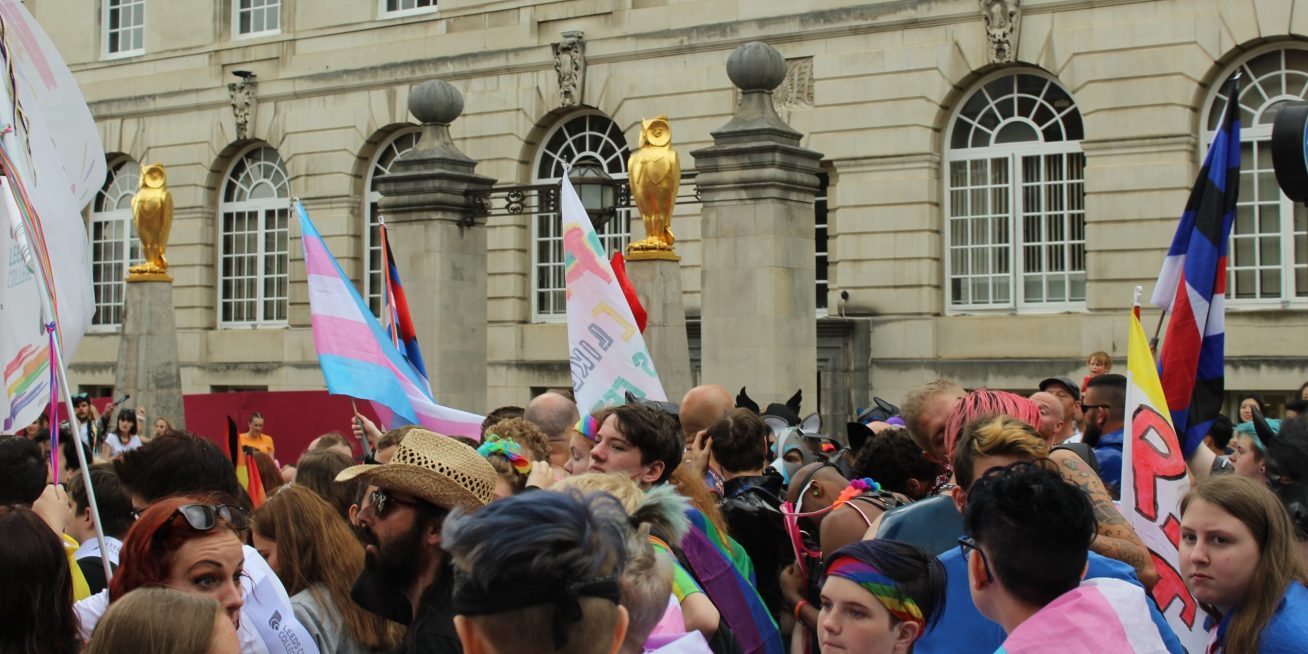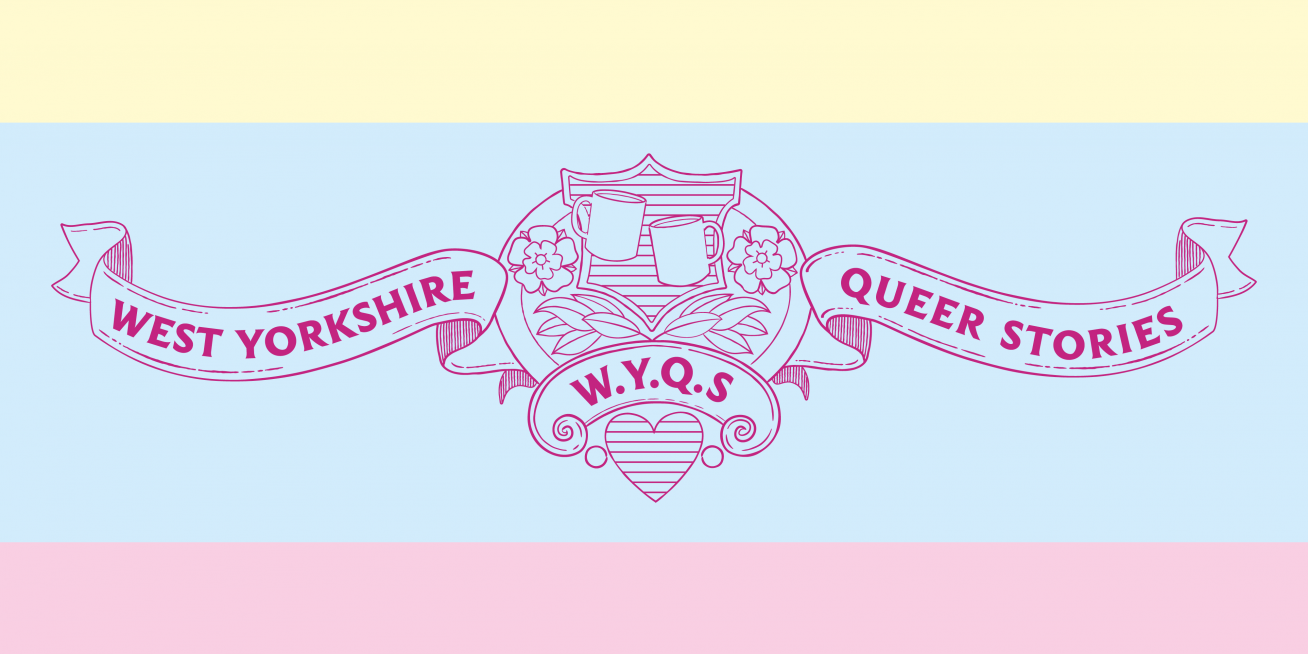Non-binary labels and pronouns
In a conversation with their mum, Kellan talks about different words describing gender and sexuality, and how these have changed since the 1970s.
TRANSCRIPT
After a little while, I talked to my... My mother and I were talking in the garden – picking gooseberries, I think – and she said to me something like: ‘So, do you… what do you think about your sex, or gender?’ And it was completely out of the blue as far as I was concerned. And I talked a little bit about it, and then she outpoured all this stuff about me being a girl when I was a child. And I said: ‘Well I actually don't identify as a man or a woman anymore.’ And she said: ‘Well, that makes perfect sense to me.’And then she said: ‘So if you don't identify as a man does that still make you gay?' And I said: ‘I have no idea!’ She said: ‘Well, no, I don't suppose you do, do you.’ I said: 'No, this mess doesn't really have a resolution with a single label really.’ So I've tended to use the word ‘Queer’ because of... because I can’t think of what else to describe my sexuality as, because it’s just a mess, really.
And so I’ve increasingly decided that I identify as a trans person because I don’t... I think… non-binary... I’ve been to some non-binary groups and they are really young people and they have a very different upbringing and ideas about gender. Not always very political I have to say. Some really quite conservative views about gender actually, and some quite strange assumptions about what men or women are like, or what straight or gay people are like. You get that sometimes with gay people cos, you know, I’ve always had friends – a whole range of people – and they'll go: ‘Oh God!’, you know, ‘It's all bloody heterosexuals around here!’ And I'm thinking: well, there’s heterosexuals and heterosexuals, you know. You can't… People who belong to ninety, eighty-nine percent of the population, you can’t categorise in a simple way, and a lot of that sadly does come back to what I was saying earlier – that it's class assumptions being made about… when people talk about a heterosexual it’s quite often middle class, or maybe working class, but very much men. It’s very much men.
Anyway, so I started non-binary and that was like a revelation. And then of course I began to flick back through my life and see what clothes I was wearing, and when I was in fact impersonating a man or I wasn't even bothering to. So my position now is that I don’t care and I’m not going to try, you know. I’m not identifying as a man. I don’t want to be a woman. I think, I don’t want to be a woman… I don’t know what a woman is, and it’s not really where I want to be.
But my mother – the last time I saw my mother, which was about six weeks ago, and she – we – were talking [unclear] again about this because she is having problems with my gender, my pronouns… she doesn't like ‘they’. She says: ‘It makes you sound like you’ve got a mental complex.’ So she wanted to call me ‘it’ and I said: ‘I’m not a refrigerator!’ So I’ve said, I’ve now given her permission to call me ‘he’ because me dad is still a bit homophobic, so we’ve decided that he probably won’t handle this bit. Masculinity is the problem for him. So I’ve given her permission to call me ‘he’ because it would be too complicated, but she has to deal with the fact that both my nieces call me ‘they’ and they call me ‘Unty’ Kellan as opposed to uncle and aunty and she’ll just have to get used to that.
It’s very… I feel very positive, but that’s right. She said to me, well… I suppose the thing is… If I was eight now, or six now, and I was saying ‘I am a girl,’ I’d have a completely different life, and transition, and become a woman, and my life would be completely different. And I said: ‘Well, yes, that is exactly what would happen.’ And she went: ‘But we didn’t have any choices in 1972.’ And I said: ‘I know you didn’t. I don’t blame you. Don’t feel blamed'. Because I don’t feel angry towards her. She, you know… it wasn’t her fault, you know. I feel angry to some people but, on the whole, I don’t feel angry to anybody in the Seventies really because, I just think, you know, nobody knew any better.






